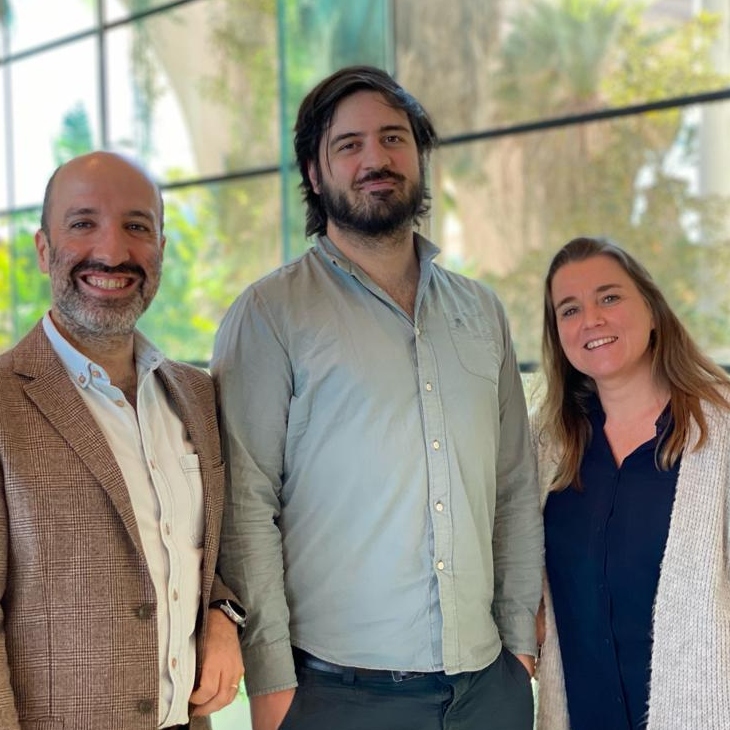Slated to begin recruiting patients in 2025, the PsyPal study represents a significant step in exploring innovative treatments for deep psychological and existential distress in those with advanced illnesses. The CF, alongside three other European clinical sites, will treat over one hundred patients, each site focusing on a different condition. The CF will concentrate on patients with late-stage movement disorders including atypical Parkinsonian syndromes, while other centres in the Netherlands, Czech Republic, and Denmark will address chronic obstructive pulmonary disorder, multiple sclerosis, and amyotrophic lateral sclerosis, respectively.
These conditions, all incurable, greatly impact patients’ lives, often leading to severe psychological suffering. With depression and anxiety prevalent in 34% to 80% of these patients, the need for innovative treatments is critical. Albino Oliveira-Maia, head of CF’s Neuropsychiatry Unit, explains, “Initially, psychedelics showed promise in treating depression and anxiety in patients with terminal cancer. However, results were more variable in patients with psychiatric disorders in the absence of a life-threatening diagnosis, leading us to refocus on incurable conditions. At CF, we will be exploring the efficacy and safety of psilocybin in patients with late-stage Parkinsonism”.
Carolina Seybert, a clinical psychologist and researcher at CF, stresses the urgency of finding immediate psychological or emotional relief for palliative patients. “Our goal is to offer rapid and effective relief for these patients, for whom conventional interventions often fall short”. Seybert further clarifies, “Currently, CF is not yet administering psilocybin for depression and anxiety treatments. The upcoming trial will first assess its safety and effectiveness in palliative care. We are especially interested in the long-term effectiveness of the treatment, a crucial aspect that is frequently undervalued. The trial is designed to span three months, followed by a comprehensive six-month follow-up to assess enduring outcomes”.
The study will implement a multicentre randomised controlled trial, allowing the researchers to gather data from a diverse range of participants across different locations in Europe to enhance the validity and applicability of their findings. Patients in the trial at CF will undergo three preparatory sessions, followed by two treatment sessions receiving either psilocybin or a placebo.
Participants on psilocybin will start with a lower dose to gauge their response, followed by a higher one. Those randomly assigned to the placebo group will also be given the opportunity to undergo a treatment session with open-label psilocybin. Three additional integration sessions will follow, offering ongoing psychological support. Seybert notes, “All therapists will be thoroughly trained and adhere to a standardised manual, essential for providing consistent care alongside the medication”.
Marcelo Mendonça, a neurologist in the trial, highlights, “Palliative care is often confused with end-of-life care, but it’s more about managing complex symptoms. This is especially true for atypical Parkinsonian patients, who often suffer from high depression rates. Current treatments are not effectively tackling depression in these patients, for reasons which are not fully understood”.
Mendonça continues, “Given that depressive symptoms are a significant indicator of quality of life, addressing depression is a top priority for us. Our focus with this study is on improving patients’ mental well-being, not their motor functions. However, it’s also important to consider that depression can affect how patients perceive their physical symptoms. Consequently, we will closely monitor not only affective symptoms but also cognitive and motor symptoms to evaluate how they evolve under treatment”.
Oliveira-Maia adds, “If this treatment proves effective, in the future we will be interested to explore the individual contributions of the drug and psychological support in aiding patients with depression. This knowledge will be crucial for efficient allocation of resources”.
About PsyPal
The PsyPal trial, coordinated by the University Medical Centre Groningen in the Netherlands and in collaboration with HumanKindLabs, marks the first-ever European Union grant to fund a clinical trial into psychedelic-assisted therapy. Funded by Horizon Europe, the EU’s main research and innovation programme, the trial seeks to alleviate psychological and existential distress in patients with one of four different progressive diseases.
Treatment will focus on specific conditions at different centres: late-stage Parkinsonism at CF in Portugal, chronic obstructive pulmonary disorder at the University Medical Centre Groningen in the Netherlands, multiple sclerosis at the National Institute of Mental Health in the Czech Republic, and amyotrophic lateral sclerosis, jointly at the University of Copenhagen and the Bispebjerg Hospital in Denmark.
PsyPal will merge psychotherapy and pharmacotherapy to address the complex needs of these patients. Aiming for lasting well-being beyond immediate clinical outcomes, it will utilise peer support and online tools to enhance coping mechanisms and ease distress for patients and their families.
This trial is more than a clinical study; it is a collaborative effort involving 19 European organisations from 9 countries, bringing together a diverse array of specialists. Psychiatrists, palliative care physicians, psychologists, and psilocybin therapy experts will work alongside researchers in spiritual care and religious representatives, forming a unique interdisciplinary consortium.
Disclaimer
The partners in the research consortium are committed to upholding the highest ethical standards in clinical and research practices, as laid out in the Horizon Europe regulation. Furthermore, the consortium will adhere to any requirements or recommendations from ethics committees and regulatory authorities.
Disclaimer - PsyPal is funded by the European Union. Views and opinions expressed are however those of the author(s) only and do not necessarily reflect those of the European Union or the Health and Digital Executive Agency. Neither the European Union nor the granting authority can be held responsible for them.
Text by Hedi Young, Editor and Science Writer of the Champalimaud Foundation's Communication, Events & Outreach Team.

